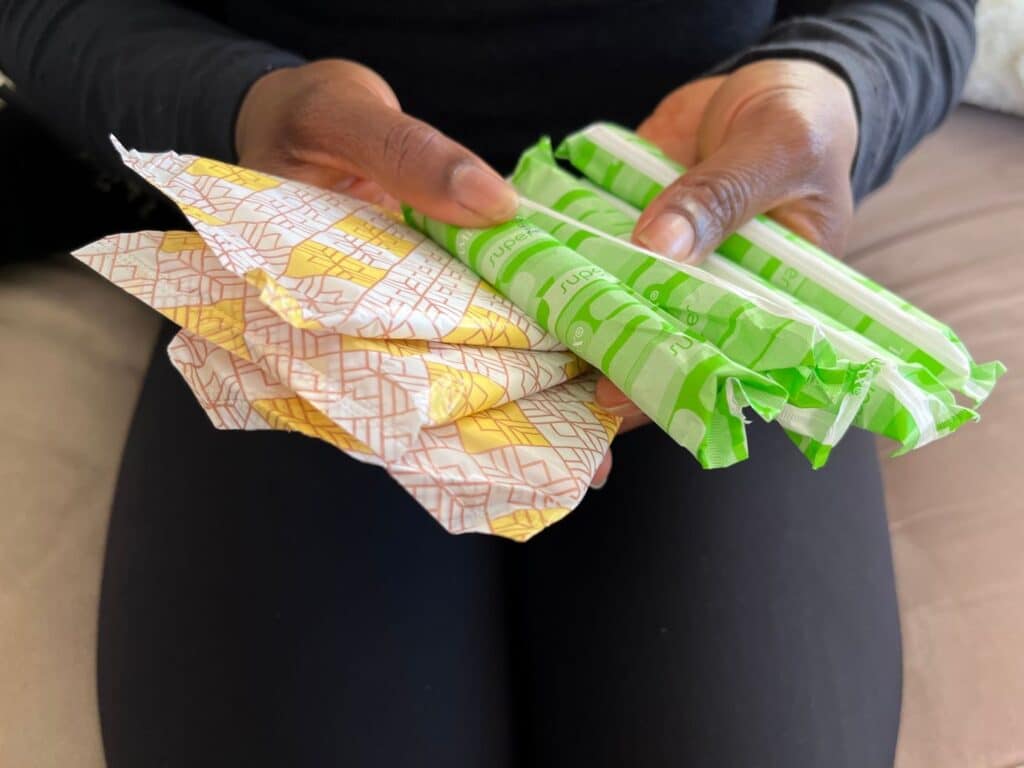Heavy menstrual bleeding affects 1 in 4 women of reproductive age, yet it’s often shrouded in silence.
Half of women with heavy menstrual bleeding also have pelvic pain. It can occur at any age, but is more common amongst adolescents and also perimenopausal women.
It can lead to significant physical compromise and emotional distress, impacting quality of life and well-being.
A silent struggle
Despite the availability of treatments, many women endure heavy menstrual bleeding in silence due to stigma and misconceptions.
If you’re experiencing these symptom(s), it’s important to consider that they may be indicative of heavy menstrual bleeding and possible resultant iron deficiency/anaemia.
Here’s a quick checklist to help you:
- Quality of Life: Is the bleeding causing significant disruption to your daily activities?
- Duration: Are your periods lasting more than 7 days?
- Flow: Is the menstrual flow heavy enough to require frequent changes of tampons or pads?
- Clots: Are you passing clots larger than a 50-cent coin?
- Sanitary Protection: Do you need to use two or more forms of sanitary protection simultaneously?
- Nighttime Changes: Are you waking up during the night to change sanitary protection?
- Frequency of Change: Are you changing your tampons or pads every two hours or more often?
- Clothing: Are you experiencing flooding through to your clothes?
- Exhaustion: Do you feel exhausted, possibly due to blood loss?
Treatment Options
A range of treatments exist, from medical, including hormonal therapies (intrauterine device) to radiological and surgical interventions including minimally invasive ones like endometria ablation.
The choice of treatment should be via shared decision making with your medical practitioner, tailored to individual preferences, needs and medical advice.
International Heavy Menstrual Bleeding Day is coming up on May 11. It’s a a day to break the silence around heavy menstrual bleeding and its impact on women.
It’s a call to action to educate, support, and empower women to seek timely medical care. Here is the link to attend the free virtual event 10am-12pm.
We are also welcoming lived experience stories from women, who can be deidentified, via the same link.
Join the Movement: Be part of the change.
Please spread awareness and advocate so we can better support those living with heavy menstrual bleeding. Together, we can bring this hidden issue to light.
Dr Talat Uppal is a Gynecologist and Director of Women’s Health Road in Sydney. She’s also the visionary behind Australia’s first Abnormal Uterine Bleeding Hub and CEO of Bleed Better, a charity based initiative, helping coordinate the inaugural International Heavy Menstrual Bleeding Day (IHMBD) on May 11th, 2024. This milestone event aims to raise awareness, challenge stigma, and promote access to medical care for people with heavy menstrual bleeding (HMB).
Dr Ghalia M Abumohsen is an overseas based General Practitioner and a volunteer with Bleed Better.


